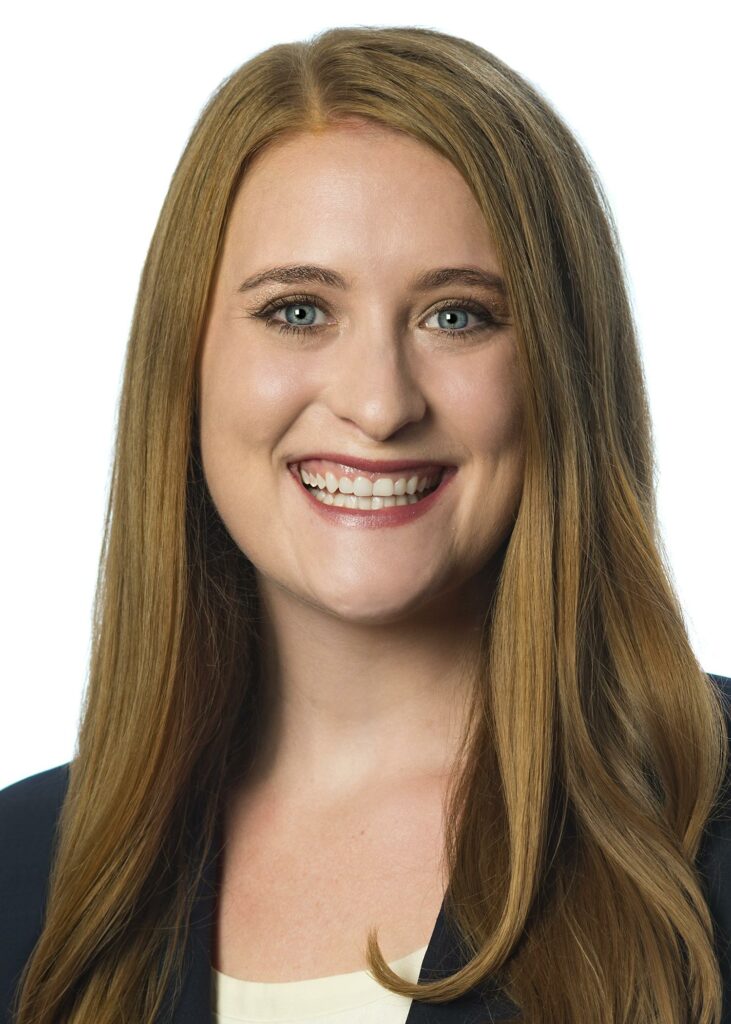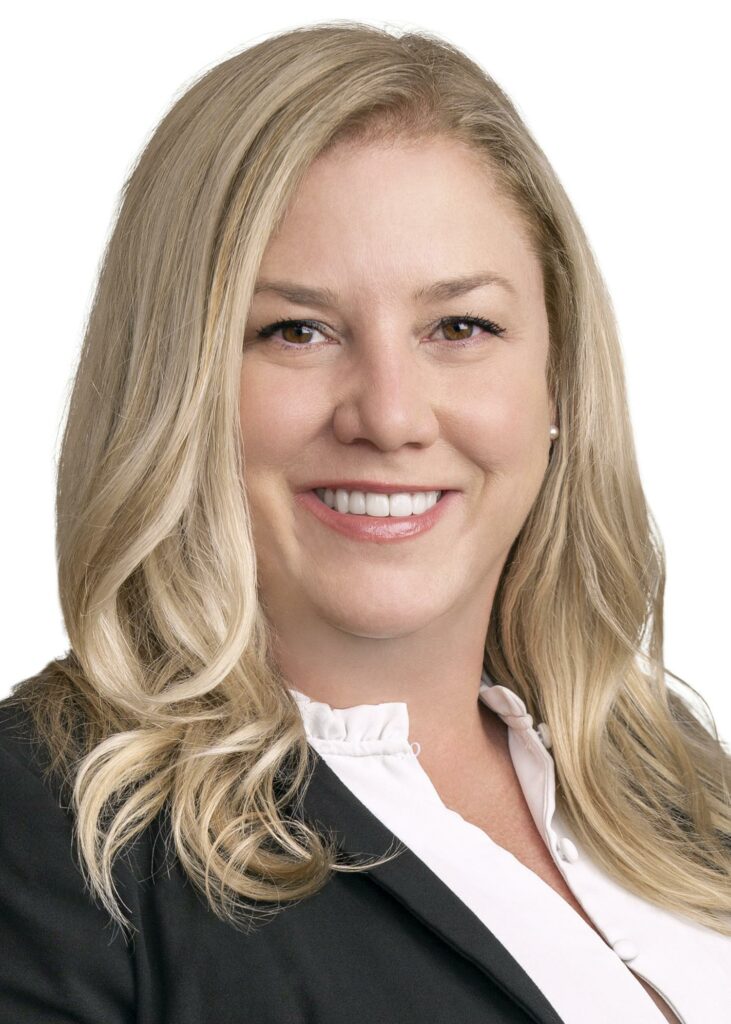On Friday, menstrual products and family care products such as baby wipes, breast pumps and diapers will no longer be taxed in Texas.
The elimination of sales tax on these items by SB 379 is expected to have a significant impact on low-income families, saving Texans almost $225 million over the next two years, and hundreds of dollars on tampons and other feminine hygiene products for those who menstruate throughout their lifetime.
A team of pro bono lawyers from Baker Botts represented the Texas Menstrual Equity Coalition, the advocacy group largely credited for making SB 379 a reality. The Coalition was formed in 2020 by a group of young women — many of them still in high school at the time — who were dedicated to driving awareness and legislative change around menstrual equity in Texas.
The Baker Botts pro bono team, led by senior associates Laura McGonagill and Kelly Hanen and special counsel Ali Andrews, included a roster of lawyers from the firm’s litigation, tax and appellate practice groups who spent hundreds of hours on the matter. The Coalition first approached Baker Botts in 2020 to see if there was a legal avenue to eliminate the tampon tax under current regulations at the time.
The lawyers filed an administrative proceeding against the Texas Comptroller requesting a refund for sales tax paid for feminine hygiene products, arguing that the comptroller’s own regulations already prohibited the sales tax of these products because they should be considered “wound care dressings,” which are tax exempt under Comptroller Rule 3.284.
The Comptroller denied the refund claim, and after appealing the decision through all required administrative channels, the legal team prepared to file a lawsuit in state district court. Litigation became unnecessary after lawmakers passed legislation during the 2023 legislative session exempting menstrual products from sales tax.
During the legislative session, the lawyers submitted written testimony to the Texas House and Senate committees on behalf of the Coalition in support of the proposed legislation. Coalition members also attended and testified at the hearings discussing the issue. The legal team also communicated with Texas Rep. Donna Howard, who had been attempting to pass a tampon tax exemption law in the legislature since 2017, as well as Period Law, a national organization committed to ending the tampon tax in every state.
In the below Q&A with The Texas Lawbook, McGonagill, Hanen and Andrews discuss how the firm got hired, the legal work that went into this matter, why it was important for the firm to take this pro bono matter and what the impact will be in Texas when this law goes into effect Friday.
Texas Lawbook: How did the Texas Menstrual Equity Coalition get connected with the firm?
Laura McGonagill: It was somewhat of a chance encounter. I had previously worked with an expert witness in an unrelated matter who, knowing Baker Botts’ commitment to pro bono work, introduced me to his daughter, who is a founding member of the Coalition. I then met the other members of the Coalition, recruited other lawyers in the firm to join in the representation, and the rest is history!

Lawbook: Had the firm ever worked with the Coalition before or any of the individuals connected to the group? If so, can you elaborate?
McGonagill: This was the firm’s first representation of the Coalition.
Lawbook: I understand that the Coalition is made up of a group of young women — some of them teenagers. Is this the youngest group of advocacy clients that the firm had worked with? To add, what do you think this group’s passion for making meaningful change at such a young age says about the next generation of law firm clients?
Kelly Hanen: We regularly represent children (some younger than school age!) in our asylum and immigration pro bono work. Given the firm’s long history, we can’t speak to whether this is our youngest group of “advocacy clients” ever, but it was incredibly inspiring to be approached by women in high school and college who were so passionate about making a change. It was also an important reminder about the legitimacy we offer by being lawyers, and especially lawyers at Baker Botts. One member of the Coalition felt like their efforts were not being taken seriously prior to our involvement; that is a humbling and powerful reminder of the importance of pro bono work. I think it also shows the increasing importance future clients will place on a firm’s pro bono work. Clients want to see that the firms they hire are good members of the community.
Lawbook: Why was it important for both the firm and the lawyers on the team to take this case?
Ali Andrews: The tampon tax is not only a form of gender-based discrimination, but also one that disproportionately impacts low-income communities. Very rarely in our careers do we have an opportunity to fight such an injustice with the chance to make a real difference for so many people. Ultimately, it was an opportunity that the lawyers on our team (and our firm) were eager to take on.
Lawbook: How many pro bono hours did the team dedicate to this matter?
Hanen: Over 700 pro bono hours collectively over the life of the matter.
Lawbook: When you learned that Texas exempted sales tax for less essential men’s items — libido enhancers, prostate vitamins, etc. — what was your reaction? And did you find that any other states also did this?
McGonagill: Many of us were incensed. And even more motivated to our cause.
Lawbook: With inflation accounted for, what’s an estimate of how much money the tax exemption will save the average Texas woman per year or throughout her lifetime?

Hanen: Our research suggests that people who menstruate will save hundreds of dollars over the course of their lifetimes with menstrual items exempted from sales tax. The impact of this bill, however, will have an even greater impact on all Texans, as the bill also exempts other necessities like diapers, baby wipes, bottles, maternity clothing, and products for pumping breast milk. Ultimately, Texans will save almost $225 million over the next two years as a result of this bill.
Lawbook: Before this bill passed, Texas was one of 26 states that charged sales tax for menstrual items. When you looked at the states that already did not charge sales tax, were there any that stood out to you in terms of how they got that legislation passed in their state or any legal nuances tied to this issue that was helpful in building your case? If so, please elaborate.
McGonagill: The Coalition had seen news articles of lawsuits filed in Michigan and New York arguing that sales tax on menstrual products was unconstitutional gender-based discrimination and wanted to see if there was some legal basis to argue the same in Texas. Texas’s constitution includes an Equal Rights Amendment, elevating sex to a suspect class, meaning laws differentiating on the basis of gender invoke strict scrutiny review. While a good precedent, ultimately that argument took a back seat. We involved our tax group and agreed that pursuing this under the tax code offered a strong textual argument. So, a regulatory basis for sales tax exemption became our primary argument, but we included constitutional arguments as well.
Lawbook: Talk more about the kind of legal work required in this effort throughout the process and how each team member divided up the work.

Andrews: It was a true interdepartmental effort among the litigation, tax, and appellate groups at our firm. We had to draft our refund claim in a way that was convincing, legally sound, satisfied the requirements of the tax code, and positioned our claim for appeal, if necessary. All three departments were involved in all stages from the beginning — from drafting to strategy. Unique to this particular case was the fact that we had to marry our legal arguments with a larger strategy that took into account public opinion and legislative efforts.
Lawbook: When SB 379 goes into effect Sept. 1, what kind of impact will this bill have on Texas women? Why is it important?
Hanen: This is not just a win for Texas women — it is a huge win for all Texans, especially low-income Texans. Its importance cannot be overstated. Almost 15 percent of Texans live below the poverty line. A recent study conducted by the Alliance for Period Supplies found that over 70 percent of female public school students from grades seven to 12 have missed school due to a lack of menstrual products. Similarly, families who are unable to afford diapers cannot send their children to daycare — the children are missing out on early learning opportunities and parents are forced to drop out of the workforce. This bill will go a long way into alleviating these issues and improving the lives of Texans.
Lawbook: What else have I not asked about?
McGonagill: I want to make sure the entire team gets credit. Kelly Hanen and I are current Baker Botts senior associates in the litigation group that led the litigation effort along with then-Baker Botts partner Meghan McElvy. Renn Nielson, a partner in Baker Botts’ tax group, and then-Baker Botts tax associate Ali Foyt (now in-house) helped the litigation team navigate the tax code to identify legal avenues for a claim. Ali Andrews, a lawyer at Baker Botts with a background in administrative law, offered guidance on how to walk the tightrope between pushing ahead with the administrative claim and ensuring all steps of the refund claim process were satisfied with the political considerations that must be taken into account as a bill navigates its way through the legislature.
Andrews: Also, we want to provide background as to our primary argument. In July of 1999, the Comptroller announced a policy change wherein it began to recognize “wound care supplies” as a “drug or medicine” exempt from sales tax if dispensed under a prescription by a licensed physician. Around this same time, the Texas Legislature amended the state tax code to provide a sales tax exemption for certain over-the-counter drugs and medicines, removing the requirement to show evidence of a doctor’s prescription to claim sales tax exemption for certain qualifying items. Following this legislative change, the Comptroller promulgated a regulatory amendment to Administrative Rule 3.284 (relating to drugs, medicines, medical equipment, and devices). The amendment, among other things, formally advanced the Comptroller’s policy to specifically exempt wound care dressings in that it “add[ed] wound care dressings and certain skin care closure supplies to the definition of [tax-exempt] drugs and medicines. …” Pursuant to the Comptroller’s rule, “[w]ound care dressing” was defined as an “item that absorbs wound drainage, protects healing tissues, maintains a moist or dry wound environment (as appropriate), or prevents bacterial contamination.” We argued in our submission that menstrual products fit within this “wound care dressing” definition and should be tax exempt, just like other blood-absorption products like band-aids, which were already receiving tax-free treatment.
